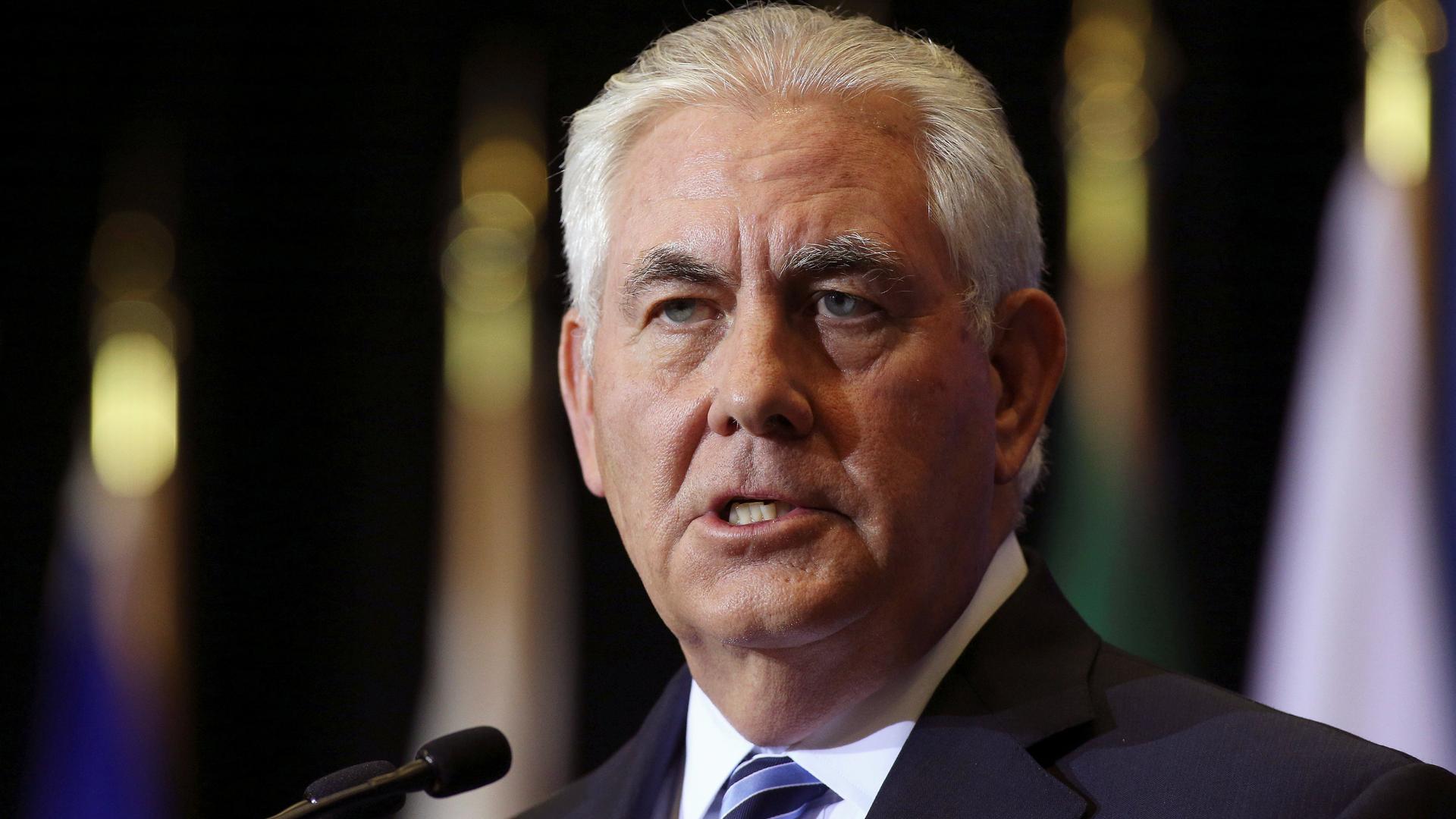The US military on Thursday denied that it was building a new 30,000 strong conventional army in northern Syria under the control of the YPG.
The US Department of Defense statement contradicted an earlier statement that the US would establish a 30,000-strong new border security force with the Syrian Democratic Forces (SDF) in Syria—a US-backed group that is controlled by the YPG.
The YPG is the armed wing of the PYD, which is the Syrian offshoot of the PKK. The PKK is listed as a terrorist organisation by Turkey, the US and the EU.
The earlier statement on Sunday by Colonel Ryan Dillon, the spokesman for the US-led coalition in Syria, which is tasked with defeating Daesh in Syria, infuriated Ankara.
However, Thursday’s Department of Defense statement, which made no reference to the SDF, read: “The US continues to train local security forces in Syria. The training is designed to enhance security for displaced persons returning to their devastated communities. It is also essential so that ISIS (Daesh) cannot reemerge in liberated and ungoverned areas. This is not a new ‘army’ or conventional ‘border guard’ force.”
Later on Thursday Pentagon spokesman Eric Pahon gave another statement to Anadolu Agency about the role of the militants.
“I do not want to characterise as a police force, but it is a kind of security and stability force or some sort of area control force,” he said.
He added that when the conflicts will be over, the militants will be trained on “security and stability.”
US owes explanation
On Wednesday, Secretary of State Rex Tillerson said the United States owes Turkey an explanation for saying it is supporting the creation of a border security force in northern Syria.
Tillerson told reporters “that entire situation has been mis-portrayed, mis-described, some people misspoke. We are not creating a border security force at all.”
Tillerson said that he understood why Turkey had reacted the way it had to the announcement of the creation of an army on its border.

Unconvinced
However, despite meeting with Tillerson in Vancouver, Turkey’s Foreign Minister Mevlut Cavusoglu said he was not convinced with Tillerson’s assurances.
“Did this satisfy us in full? No, it did not,” he told CNN Turk television, in an interview on Thursday.
“The establishment of a so-called terror army would cause irreversible damage in our relations … it is a very serious situation,” he warned.
Turkey’s top civil and military leadership said on Wednesday it would take “immediate” and “resolute” steps to protect the nation from any threats coming from western Syria.
After a meeting in Ankara, Turkey’s National Security Council said “necessary steps would be taken immediately and resolutely to defeat any threat against Turkey from western Syria in the first stage.”
The statement added that necessary steps will be taken to secure the life and property of the local community, and strengthen Turkey’s border with Syria.
The council said “the establishment of a terror corridor and the formation of a terrorist army across the border will not be allowed.”
Deployed
The meeting, chaired by President Recep Tayyip Erdogan, lasted more than four hours. On Monday, Erdogan threatened to “strangle” the planned US-backed force announced by Dillon in Syria “before it’s even born”.
Erdogan has also threatened military action against the region of Afrin, to the west of the area where the border force was apparently planned.
There appeared to be no support for the YPG militants in the Afrin area from the US.
Pentagon Spokesman Major Adrian Rankine-Galloway told Anadolu Agency on Tuesday that the US does not support YPG militants in Syria’s Afrin and does not see them as part of their fight against Daesh.
“We don’t consider them as part of our Defeat ISIS [Daesh] operations which is what we are doing there and we do not support them,” he said.
“Elements out of SDF areas are not receiving any train-advice assists from us. The groups that we support are exclusively are involved in operations countering Daesh,” he added.
Turkey’s statements that it would be prepared to take action in Afrin have not gone down well with the Syrian regime.
The regime’s deputy foreign minister was quoted by Associated Press as saying that the regime’s air force would shoot down any Turkish jets that enter Syria.
‘Not against Kurds’
Turkey’s steps to protect its national security are “definitely” not a move against Syrian Kurds, said Turkey’s presidential spokesman on Thursday.
Speaking to reporters in Istanbul, Ibrahim Kalin said Turkey will take any measure necessary to protect its national security without needing anyone’s permission.
“I want to underline once more that the steps Turkey takes towards protecting its own national security in Afrin, Manbij, Jarabulus or in other places [in Syria] are definitely not a move against Syrian Kurds,” Kalin said.
An operation in Afrin—a region bordering Turkey’s Hatay and Kilis provinces—is widely expected in the wake of Turkey’s seven-month Operation Euphrates Shield in northern Syria, which ended in March 2017.
Turkish army units were seen being deployed on its border with Western Syria near Afrin.
The Assad regime handed over Afrin to the YPG without putting up a fight, and there are currently some 8,000-10,000 militants in the area, according to information gathered by Anadolu Agency.










Discussion about this post